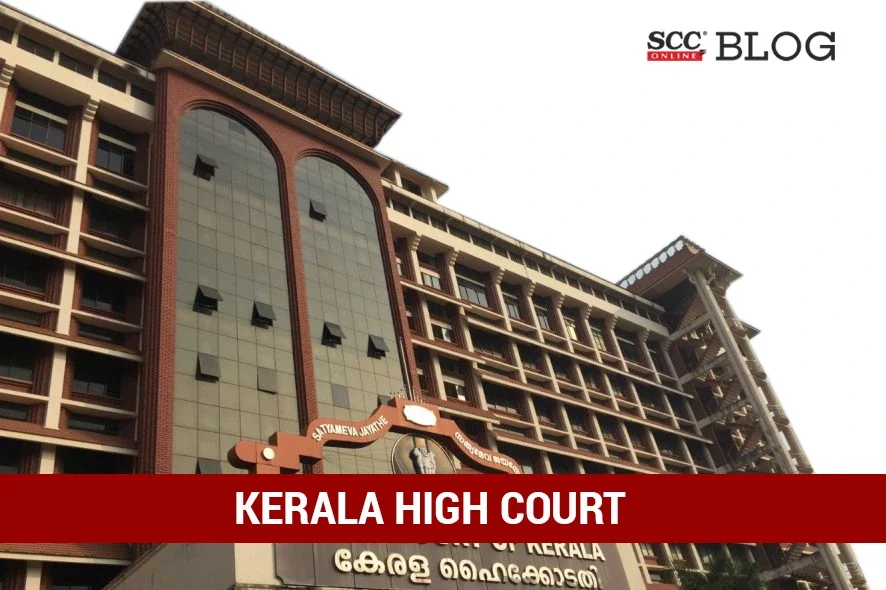Kerala High Court: In an appeal by the parents who were convicted for disposing of their infant daughter in the Arabian Sea, believing her to be life lifeless, challenging the conviction and sentence for offences punishable under Sections 302 and 201 read with Section 34 of the Penal Code, 1860 (IPC), the Division Bench of P.B. Suresh Kumar* and Johnson John, JJ. set aside the conviction since prosecution failed to prove suspicion beyond reasonable doubt.
The Court particularly considered the question of “whether an act performed by a person on a body which he/she believed to be lifeless, would attract the offence punishable under Section 299 of IPC.”
Factual Matrix
The appellants hereunder were husband and wife. A person who was baiting fish on 16-10-2015, found the dead body of the appellants’ infant daughter aged 6 months, floating in the Arabian Sea. A case was registered under Section 174 of Criminal Procedure Code, 1973 (‘CrPC’), followed by inquest and autopsy which led to suspicion of being a case of murder. The final report alleged that the couple being discontent towards their daughter, in furtherance of common intention, caused grievous hurt to her reflecting through a fractured elbow, injury on the back of her head caused by hitting against the edge of a cot, which thereby caused her death. Allegations regarding destruction of evidence of crime by disposing of the child’s body in the Arabian Sea were also made.
The Trial Court considered various incriminating circumstances as per the prosecution evidence and convicted the parents for offences under Sections 302 and 201 with Section 34 of IPC.
Court’s Analysis
The Court noted that the final report reflected the death caused by injury on back of the child’s head caused by hitting against the edge of a cot, and destruction of evidence by disposing the body in Arabian Sea. However, the charges framed by the Court did not allege in respect of the head injury, but that the death was caused by disposing of her body in the Arabian Sea, and destruction of evidence by disposing of the child’s body.
The Court acknowledged the submission of parents not denying the identification or the act of disposing of the body at the Arabian Sea. The Court noted their version that they did not dispose of the infant alive in the sea as alleged, but only disposed of after her death stating the act to be a form of burial as per their custom. It was submitted that they were unaware of the child being alive while disposing of her body in the sea.
After perusing the evidence tendered by witnesses creating a suspicion of the infant being abused physically by somebody at home, the Court expressed that the same was insufficient to hold that the child was subjected to physical abuse by her parents, explaining that how great a suspicion may be, it is not a substitute of proof in criminal jurisprudence. The same was expressed by the Trial Court while acquitting the appellants under Section 325 of IPC. It further pointed towards the instance when the mother took her daughter to the hospital after she suffered injury on elbow, she was found weeping after her daughter was denied treatment for not disclosing the cause of injury, a conduct inconsistent to the allegations levelled that she physically abused her to cause the death of her own child, establishing her emotional attachment with the infant.
Regarding non-disclosure on part of the appellants when they took her in auto covered in shawl, or how she suffered injuries, with reference to Section 106 of Evidence Act, 1872 regarding knowledge of person and burden of proof, the Court stated that “There cannot be any doubt to the proposition that the burden to prove the guilt of the accused beyond reasonable doubt is on the prosecution.” The Court referred to Shambu Nath Mehra v. State of Ajmer, 1956 SCC OnLine SC 27 wherein it was observed that Section 106 is designed to meet certain exceptional cases in which it would be impossible for the prosecution to establish certain facts which are particularly within the knowledge of the accused. It relied on State of W.B. v. Mir Mohammad Omar, (2000) 8 SCC 382 and pointed out that the prosecution did not prove any facts regarding the accused having knowledge of the infant being alive at the time it was disposed of.
The Court highlighted that the doubts raised by prosecution were explained by the appellants of being unaware of the child being alive, and that there was nothing on record to rule out the said explanation for falsity. Considering the legal issue that whether disposing of an infant body believing it to be lifeless attracted offence under Section 299, the Court perused the definition of culpable homicide under Section
The Court was of the view that the appellants could not be convicted for any offence and allowed instant appeals, setting aside the conviction and acquitting the appellants.
[Prathibha v. State of Kerala, 2023 SCC OnLine Ker 10136, decided on 22-11-2023]
Advocates who appeared in this case :
For Appellant: Advocate J.R. Prem Navaz, Advocate Sumin S., Advocate P. YEMUNA
For Respondent: Special Government Pleader Ambika Devi










My suggestions:Kerala high Court dispute appellants daughter was missed in 2015,found death may be on 10-05-2015,floating death report may be another in Arabian sea an ad.Infant baby 6 months,was missed,found death in 2015 by whom,told,at floating death baby in Arabian sea by whom,said.Appellants,allegations about infant baby elbow and head fracture due to infant baby hurt cause to death may not believe,because no proof from examination report.Dispute,daughter on passing to national boundary(appellants residence area incidents possible) infant 6months as to careness is necessary,to death floating in arabian sea,not possible,appellants,on missed infant 6months age dispute forcing on police?,then another,appellants residence place period as necessary,to declare case.Public affairs,nominee Padma awards.
Regards
G.Munisekhar.